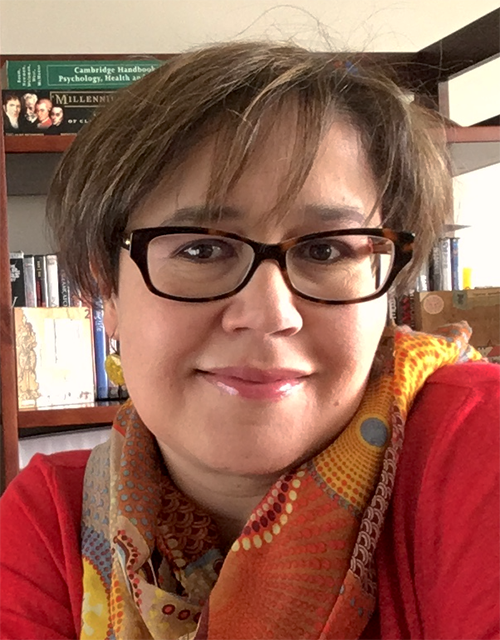
Maria Ospina spends a significant amount of time analyzing large datasets and an array of numbers. But, amid the layers of information, there is one number that has particularly captured her attention: 1,000.
"The first 1,000 days of life are a critical period in development, where many things come together," said Ospina, an assistant professor in the Department of Obstetrics & Gynecology and adjunct professor in the School of Public Health at the University of Alberta. "If something goes wrong during pregnancy, and those first 1,000 days of life, you may see the effects later-such as through chronic diseases."
As a clinical epidemiologist, one of the themes of Ospina's research is understanding what shapes these first 1,000 days and the consequences for future health. Quality of prenatal care, maternal, environmental and social influences all collide and ultimately shape the trajectory of a newborn's life. She points to close family experiences to illustrate her point.
"One of my nieces, Daniela, was born preterm, very low weight, and admitted to the NICU for weeks. My sister-in-law had all kinds of adverse maternal outcomes, the kinds you read listed in a medical textbook."
A year later both mom and baby were doing great and 16 years later, Ospina says they still are.
"Sometimes I wonder, 'what really makes the difference between a good and a bad outcome?' I like that this research helps us not only identify what can go wrong, but also how we can intervene early and what can be made better."
A generous opportunity to improve babies' lives
In 2016, Ospina was given the opportunity to study the impacts of this critical first 1,000-day time period in Edmonton through a Recruitment grant, provided via the Royal Alexandra Hospital Foundation Chair in Women's Health Research held by Radha Chari, Chair of the Department of Obstetrics & Gynecology in the Faculty of Medicine & Dentistry, and funded by the generous support of the Lois Hole Hospital for Women, through the Women and Children's Health Research Institute.
"The Lois Hole Hospital for Women is very committed to building a research agenda around perinatal health. More than 8,000 babies are born each year at the Lois Hole Hospital for Women; that is like a kindergarten class every day," said Ospina. "It's very important for me to be there and apply cutting-edge epidemiological methods to understand the natural history of diseases that originate early in life; identify risk and protective factors, and produce evidence to evaluate the value of therapeutic interventions that improve maternal and perinatal health."
Ospina's ultimate goal is to influence health policies and improve health outcomes related to maternal and perinatal health: "My proposal was in a way to 'connect the dots' between what happens during the perinatal period and later in childhood." Connecting these dots will allow Ospina to identify factors that shape trajectories of health and disease and, identify the key moments where interventions would be the most effective.
Research focusing on the developmental origins of health and disease is becoming more prominent in Alberta. Recently, Ospina co-led a meeting with researchers from across the province where priorities for perinatal epidemiology research were discussed, as well as plans to push forward an agenda of epidemiological research focused on the first 1,000 days of life.
"I am a firm believer that we are stronger together," Ospina said. "If you bring people from different perspectives around the table, research ideas evolve in ways you wouldn't even imagine."